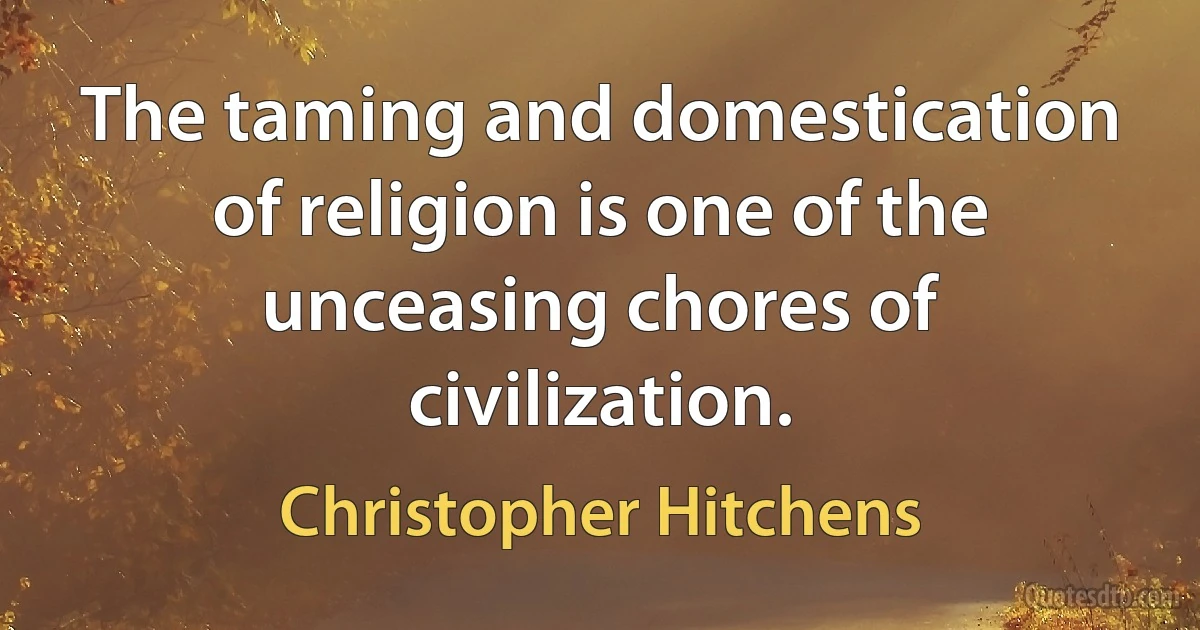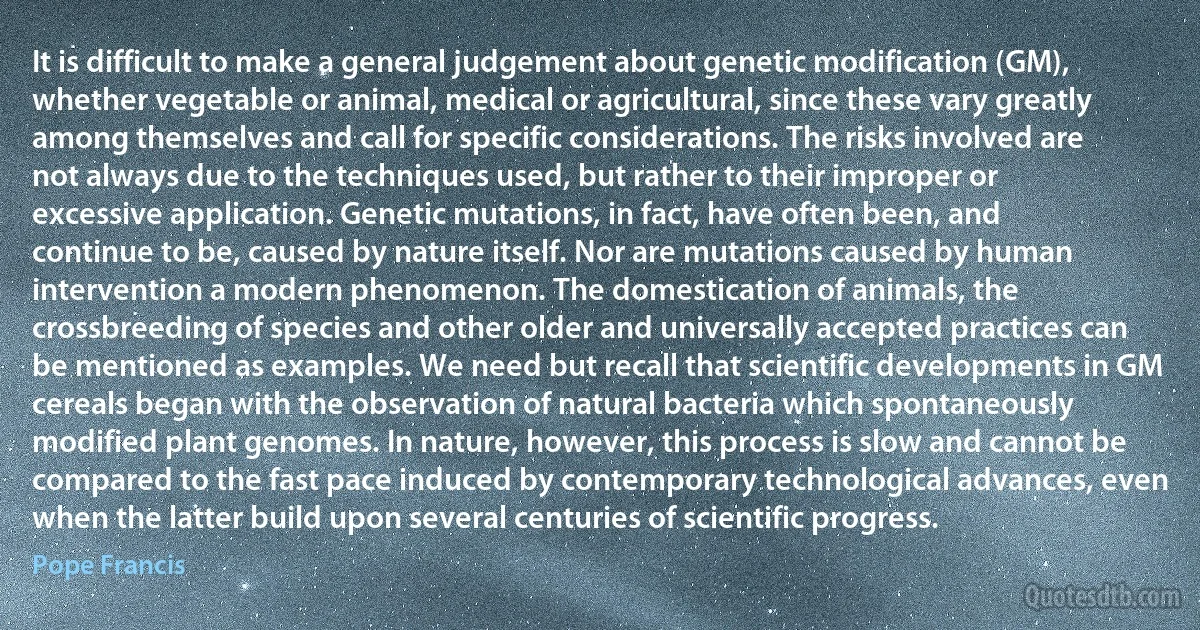Domestication Quotes
We can either passively continue on the road to utter domestication and destruction or turn in the direction of joyful upheaval, passionate and feral embrace of wildness and life that aims at dancing on the ruins of clocks, computers and that failure of imagination and will called work. Can we justify our lives by anything less than such a politics of rage and dreams?

John Zerzan
Confined within this catch-all concept, within this vast encampment of the animal, in this general singular, within the strict enclosure of this definite article ("the Animal” and not "animals”), as in a virgin forest, a zoo, a hunting or fishing ground, a paddock or an abattoir, a space of domestication, are all the living things that man does not recognize as his fellows, his neighbors, or his brothers.

Jacques Derrida
It was in the attempt to ascertain the interrelationships between species that experiments n genetics were first made. The words "evolution" and "origin of species" are now so intimately associated with the name of Darwin that we are apt to forger that the idea of common descent had been prominent in the mnds of naturalists before he wrote, and that, for more than half a century, zealous investigators had been devoting themselves to the experimental study of that possibility. Prominent among this group of experimenters may be mentioned Koelreauter, John Hunter, Herbert Knight, Gartner, Jordan. Naudin, Godron, Lecoq, Wichura--men whose names are familiar to every reader of Animals and Plants unders Domestication.

William Bateson
Throughout their early stages the movements of civilization-for, properly speaking, there was no one movement-were very slow, were local in space, and were partial in the sense that each developed along but few lines. Of the numberless years that covered these early stages we have no record. They were the years that saw such extraordinary discoveries and inventions as fire, and the wheel, and the bow, and the domestication of animals. So local were these inventions that at the present day there yet linger savage tribes, still fixed in the half-bestial life of an infinitely remote past, who know none of them except fire-and the discovery and use of fire may have marked, not the beginning of civilization, but the beginning of the savagery which separated man from brute.

Theodore Roosevelt
There's been a revolution in the fields of anthropology and archaeology over the past thirty years, and increasingly people are coming to understand that life before agriculture and domestication - of animals and ourselves - was in fact largely one of leisure, intimacy with nature, sensual wisdom, gender equality, and health.

John Zerzan
Domestication involved the initiation of production, vastly increased divisions of labor, and the completed foundations of social stratification. This amounted to an epochal mutation both in the character of human existence and its development, clouding the latter with ever more violence and work.

John Zerzan
Current evidence suggests that teosinte was first tended for its green ears and sugary pith by hunter-gatherers as an occasional rainy-season food in small "garden” populations away from its homeland, and not for its abundant grain-containing, hard fruitcases, which easily mass-collected but useless as food, are as yet unknown from the archeological record. A rare grain-liberating teosinte mutation (probably expressed in only one "founder” plant, a mazoid "Eve”), which exposed the encased grain for easy harvest, was soon recognized as useful, collected and planted (or self-planted). Thus maize was started on its way to a unique horticultural domestication that is not comparable to that of the temperate Old World mass-selected agricultural grains.

Hugh Iltis
We take it that when the state of things shall have arrived which we have been above attempting to describe, man will have become to the machine what the horse and the dog are to man. He will continue to exist, nay even to improve, and will be probably better off in his state of domestication under the beneficent rule of the machines than he is in his present wild state. We treat our horses, dogs, cattle and sheep, on the whole, with great kindness, we give them whatever experience teaches us to be best for them, and there can be no doubt that our use of meat has added to the happiness of the lower animals far more than it has detracted from it; in like manner it is reasonable to suppose that the machines will treat us kindly, for their existence is as dependent upon ours as ours is upon the lower animals.

Samuel Butler (novelist)
What has particularly interested me about these horses is that, after thousands of years of domestication, they have adapted so successfully to life in the wild. If these horses are really as healthy and as sound as they appear, then there is probably a lot we can learn from them, such as the way their hooves are shaped and the manner in which they shape them.

Jaime Jackson
Of the experiments of previous years, those dealing with Matthiola annua and glabra, Zea, and Mirabilis were concluded last year. Their hybrids behave exactly like those of Pisum. Darwin's statements concerning hybrids of the genera mentioned in The variation of animals and plants under domestication, based on reports of others, need to be corrected in many respects.

Gregor Mendel


